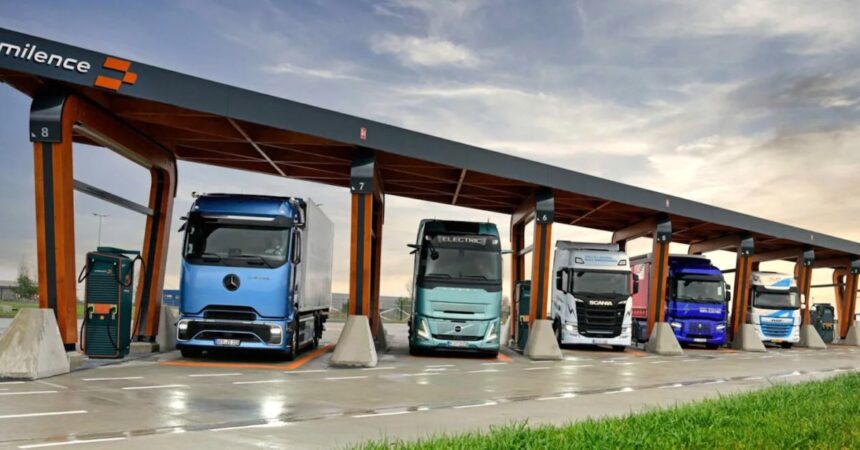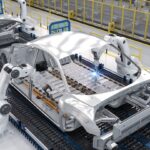French and German economists have recently issued a joint statement calling for a unified approach to decarbonizing European trucking fleets. The focus of this approach? Fully electric trucks, rather than hydrogen-powered ones.
France and Germany, as the two largest economies in the EU, face similar challenges when it comes to reducing emissions from freight transport. The traffic between these two countries generates significant cross-border flows, creating common externalities that must be addressed.
The transport sector in the EU has struggled to reduce emissions, with road freight being a major contributor to carbon emissions due to its heavy reliance on diesel-powered trucks. While rail transport is competitive for heavy, homogeneous goods over long distances, it is not always a viable option for shorter distances and lighter consignments.
The joint statement emphasizes the need to focus on battery-electric trucks (BET) as the most mature and market-ready technology for road freight transport. The experts recommend using public funding to accelerate the deployment of fast-charging networks along major corridors and in private depots to promote the adoption of BET.
The appeal was signed by experts from both countries, with the exception of one German economist who sits on the National Hydrogen Council. This demonstrates a clear preference for electric trucks over hydrogen-powered ones in the decarbonization efforts.
MAN Trucks, a prominent player in the truck manufacturing industry, has also expressed skepticism about the viability of hydrogen-powered trucks. The company’s CEO and board members have emphasized their commitment to battery-electric trucks, citing their ability to serve the vast majority of customers’ transport applications effectively.
With companies like Volvo, Renault, and Mercedes already operating successful fleets of battery-electric semi trucks, the shift towards electric vehicles in the freight transport sector is undeniable. The future of road freight transport seems to be electric, as experts and industry leaders alike recognize the potential of battery-electric trucks to drive decarbonization efforts forward.
In conclusion, the joint statement by French and German economists underscores the importance of a common approach to decarbonizing European trucking fleets, with a clear preference for battery-electric trucks as the most viable and market-ready technology. This shift towards electric vehicles signals a significant step towards reducing emissions and promoting sustainable transport in the EU.







